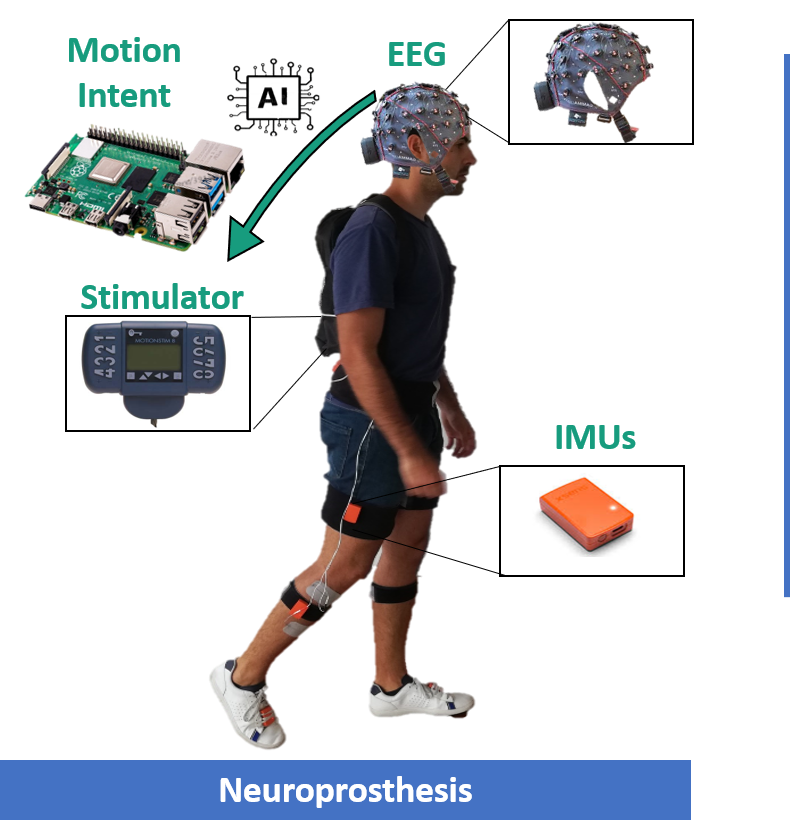NeuroLink

Spinal cord injury, stroke, and multiple sclerosis can lead to full or partial motor loss. These disabilities may only disrupt neural pathways, leaving muscles fully functional, i.e. able to contract and with excitable nerves. These contractions can be achieved with Functional Electrical Stimulation (FES), as it can bypass the biological lesion, conducting the necessary stimulus to induce a muscular contraction
Commercial FES devices currently available in the market fail to take into consideration the time-variant dynamics of the electrically stimulated muscles, the onset of muscular fatigue and any external disturbances. This deprives the user of an assisted-as-needed experience, promoting the early onset of fatigue and failing to deliver optimal excitation patterns for the muscle’s nervous system, generating coarse movements. Every subject as its own gait characteristics, which are dependent on physical condition, muscular fatigue, and rehabilitation stage. Therefore, personalized assistance (considering the user’s needs) is important to promote efficient rehabilitation/assistance.
This research proposes the design and development of bioinspired, control architecture for a wearable lower limb neuroprosthesis towards the reestablishment of motor pathways in iSCI patients. The neuroprosthesis will innovatively deliver a non-invasive FES for promoting the reestablishment of the efferent neural pathways (muscle evoking) under a personalized and user-tailored approach

